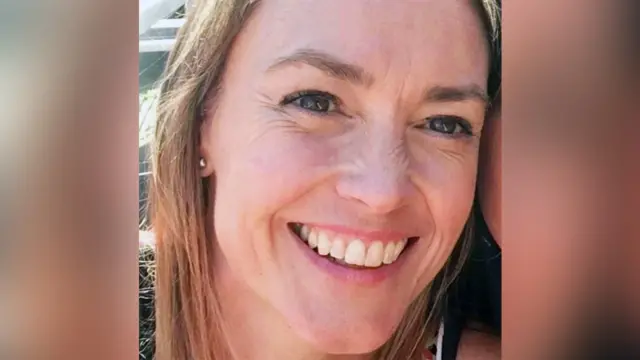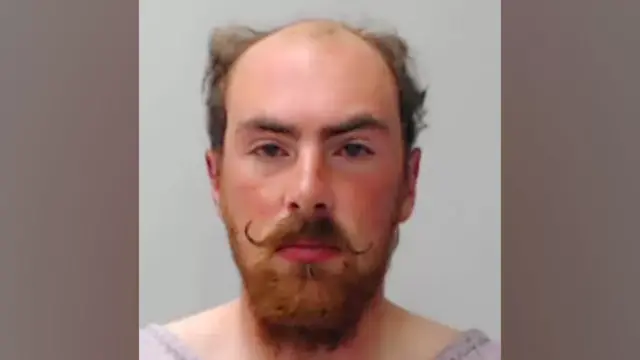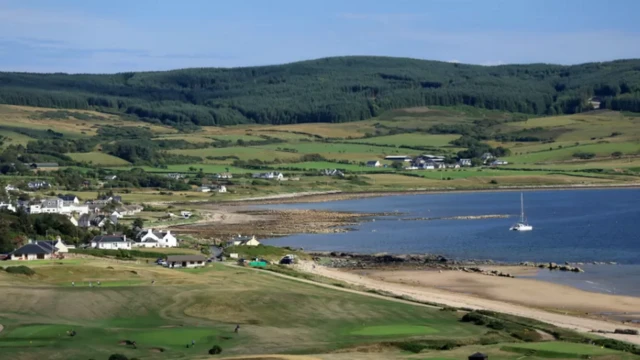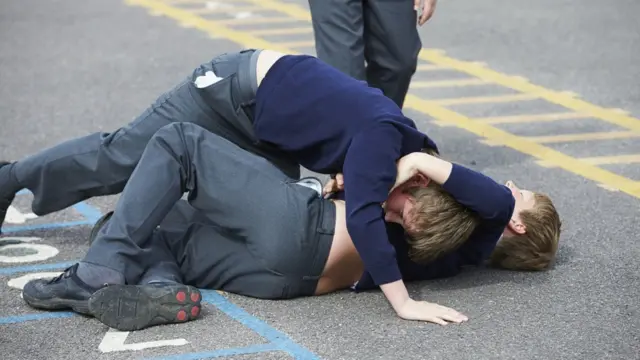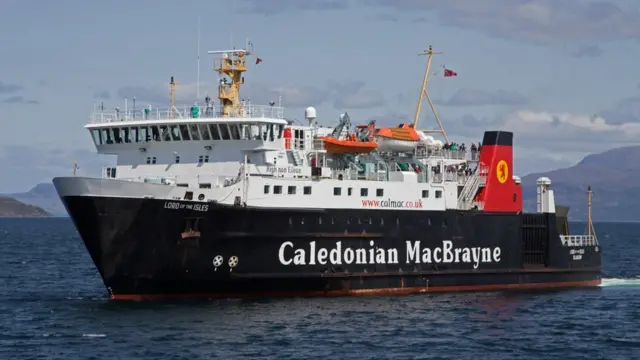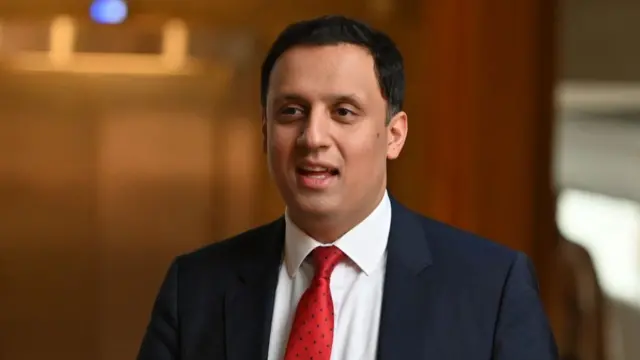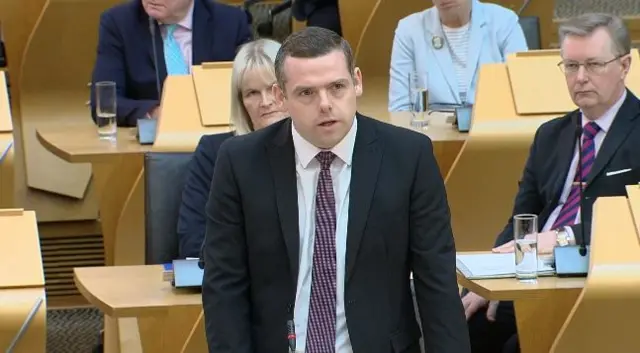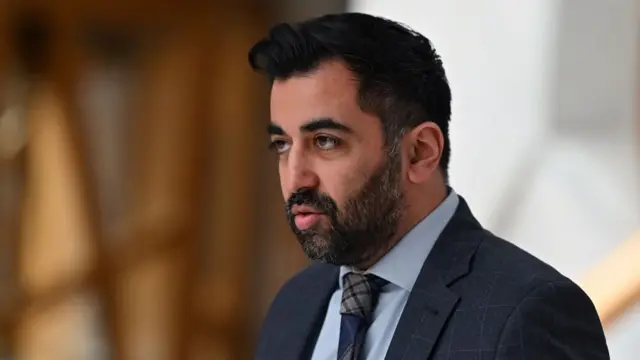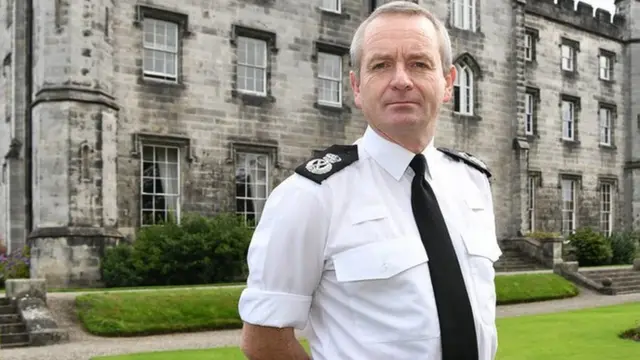First Minister's Questions: The Headlinespublished at 13:21 BST 25 May 2023
Here's a quick recap of the headlines from today's first minister's questions:
- Police Scotland dominated the start of FMQs this week, with Scottish Tory leader Douglas Ross highlighting the chief constable's admission that the force is institutionally racist and discriminatory
- Ross argued the problem of discrimination in Police Scotland was systemic and he called for action on the issue
- The FM said the chief constable's statement was "monumental" and "historic" and is just the first step in dismantling institutional discriminatory structural barriers
- Scottish Labour leader Anas Sarwar said ministers are "riding roughshod” over Freedom of Information laws, with the number of requests passed on to ministers for approval rising five-fold and waiting times doubling
- The FM insisted that while there have been “challenges”, the Scottish government has a “very good record” at responding to FOIs
- Yousaf also faced questions on millions spent on consultants for ferry advice, violence and disruption in schools, the dementia strategy and under-25 sentencing guidelines
That's all from the live page team today. The writers were Bryn Palmer, Craig Hutchison, Auryn Cox and Morven Mckinnon. Thank you for joining us.


